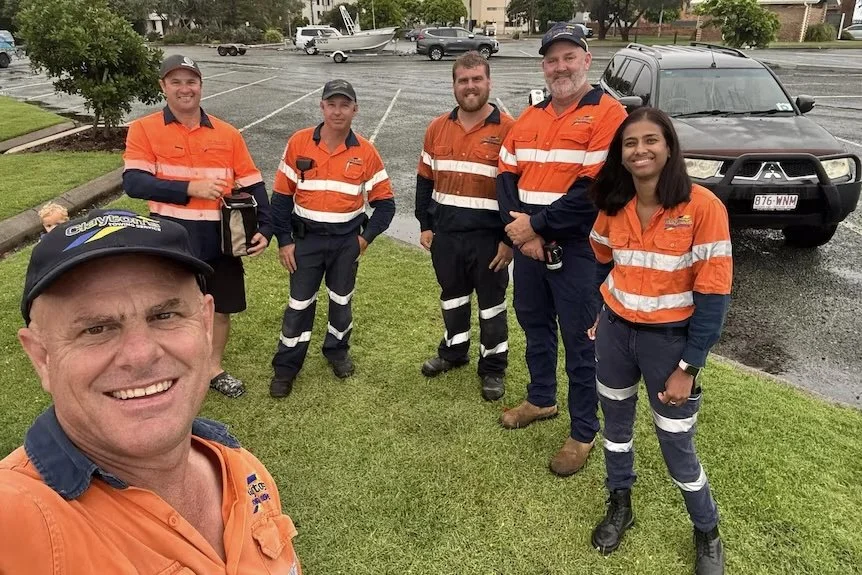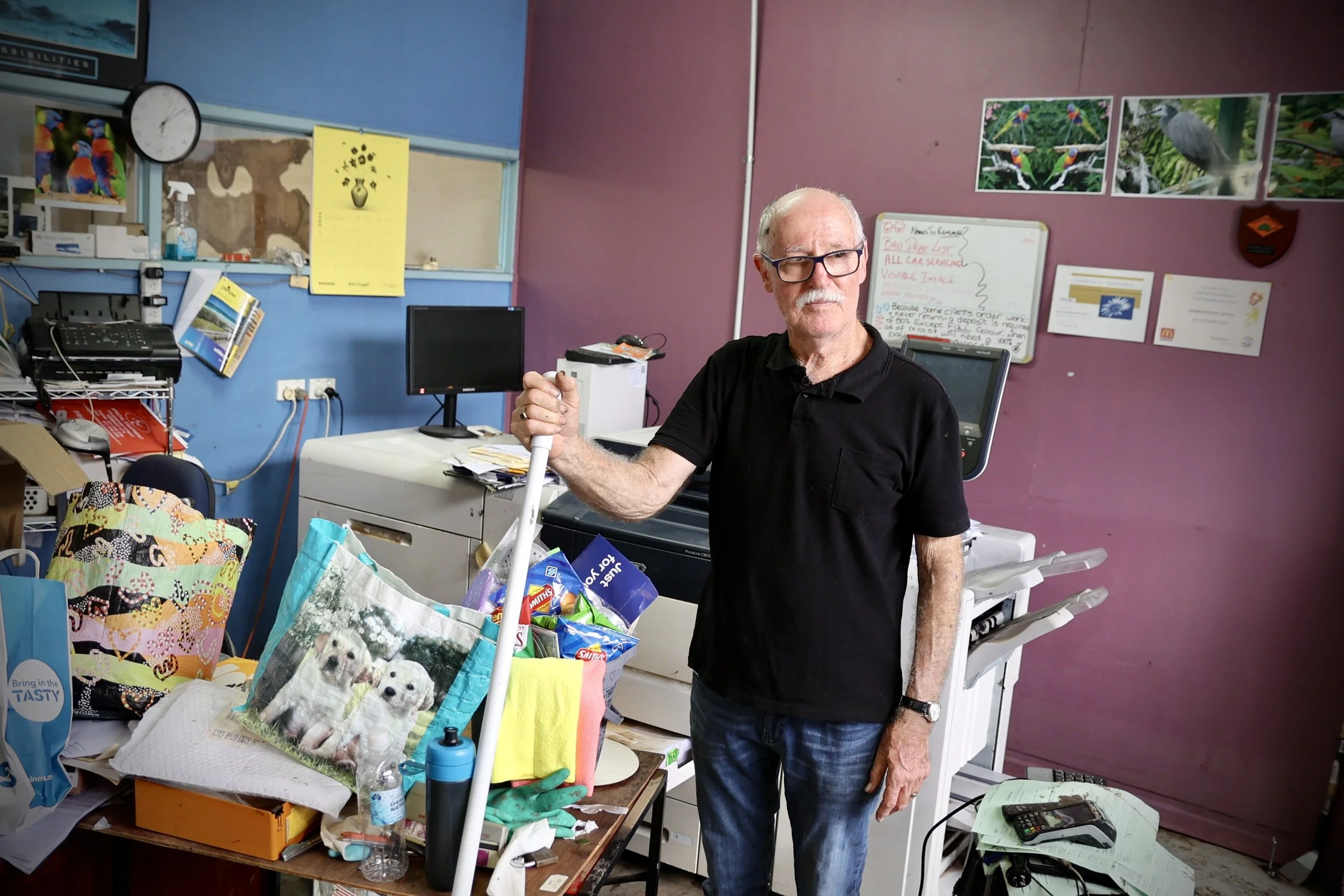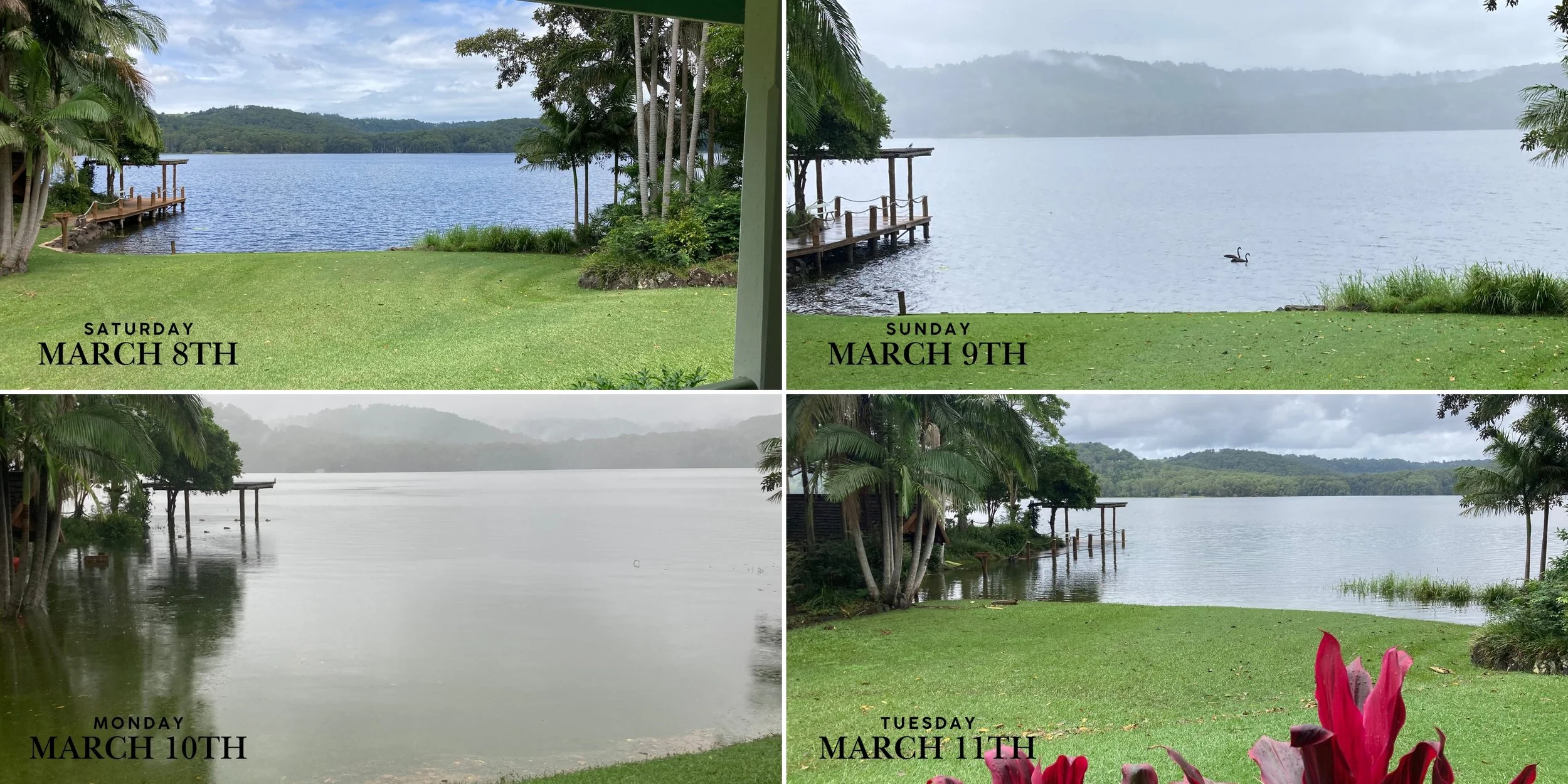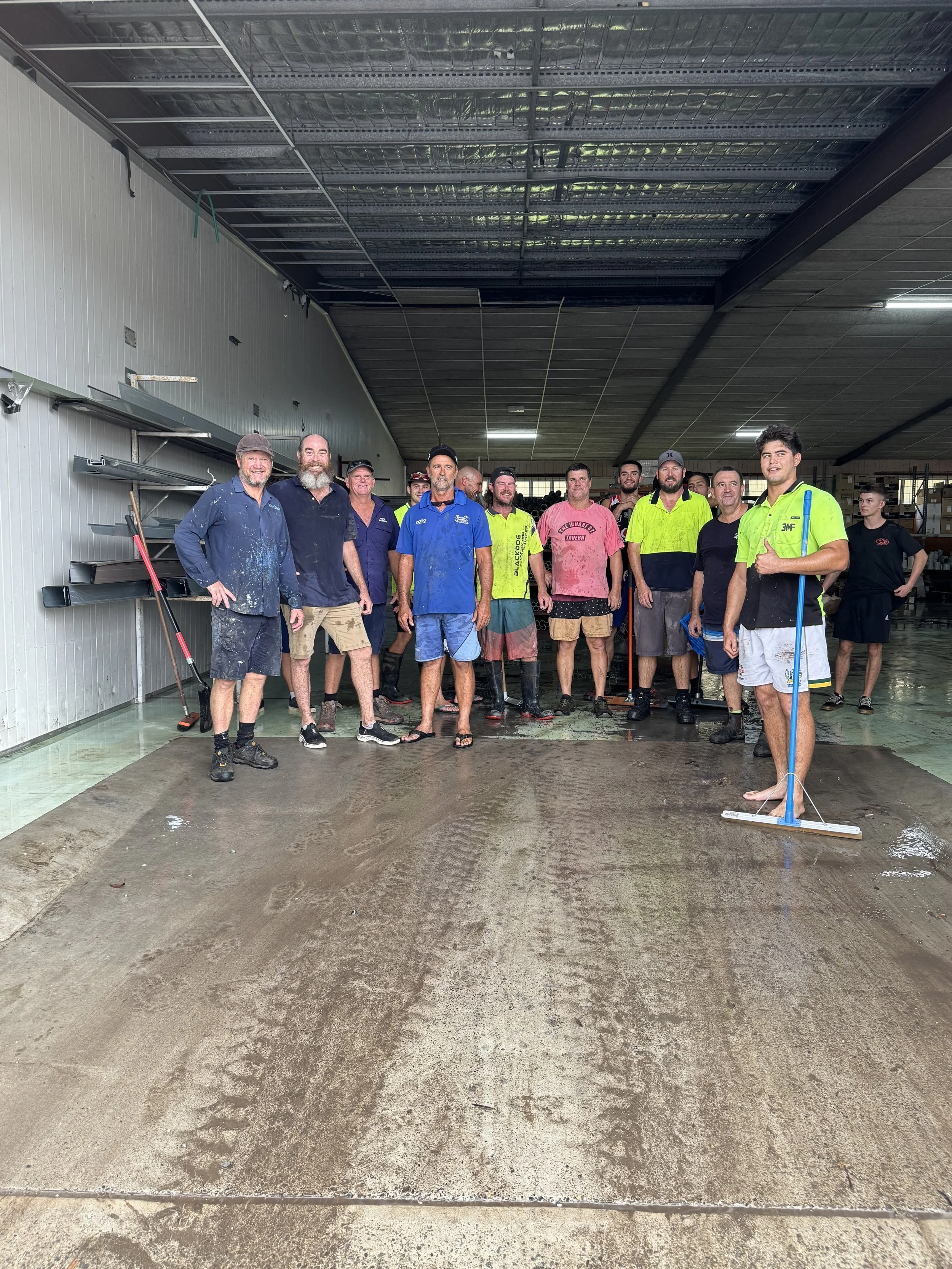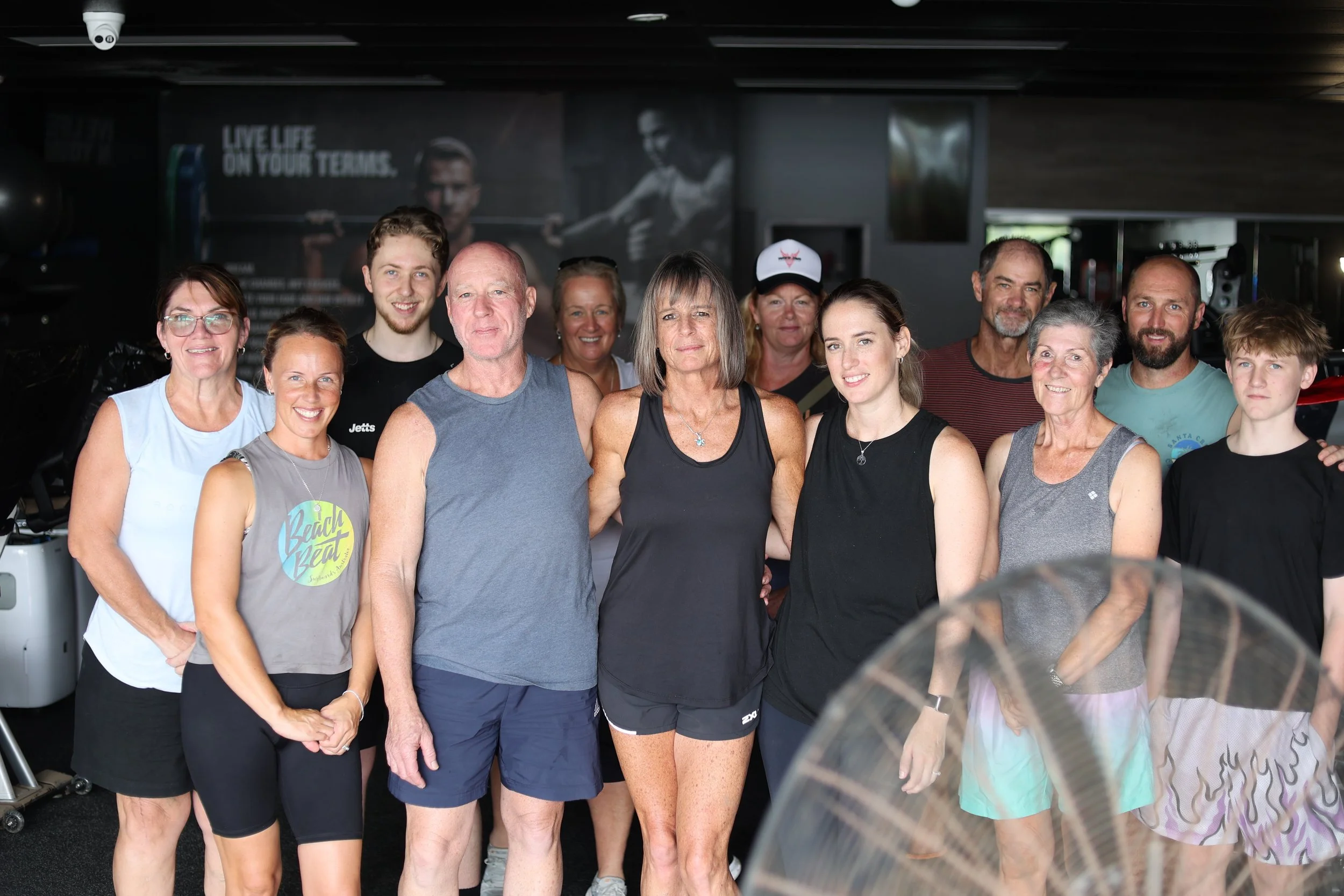Clergyman’s stirring words inspired remarkable Anzac courage under fire
Nambour Dawn Service in pictures:
President of the Nambour RSL Sub Branch
Royce Ayton’s Dawn Service Address
I firmly believe that every Anzac Day is special - it is a day of the year when we can commemorate and reflect as a community and individually — on the determination, sheer courage and sacrifice of not only our Gallipoli heroes but our modern day soldiers, sailors and airmen whom continue to serve today.
I would like to share with you a moment in our history which embodies the Anzac legacy.
Frank Pogson Bethune was born in Hamilton Tasmania in 1877. He was an unassuming clergyman who enlisted in the AIF in Hobart on the 1st July 1915. He was 38 years old. For reasons of his own Frank chose to take up arms instead of serving as a padre.
He embarked for the training camps in Egypt in February 1916 and in late march boarded the troop ship “Transylvania” bound for France.
On route, soldiers on board were upset by orders given to the ship’s captain – the mood became tense and uneasy. With no padre aboard, Bethune requested permission to address the troops. To over 1000 soldiers, he gave the following speech:
“We know what we have come for and we know that it is right. We have all read of the things that happened in France. We know that the Germans invaded a peaceful country and brought these horrors into it.
“We come of our own free wills – to say that this sort of thing shall not happen in the world as long as we are in it. And what if we die? If it were not for the dear ones whom he leaves behind, might not a man pray for a death like that? We know we are not heroes and we do not want to be called heroes. Did not every one of us, as boys, long to go about the world as they did in the days of Raleigh or Drake? And didn’t it seem beyond hope?
“Here we are on that great enterprise and with no thought of gain or conquest, but to help to right a great wrong. With our dear ones behind and God above, and our friends on each side and only the enemy in front – what more do we wish than that?”
It is easy to see, from this address, that Bethune was a man with a strong resolve to do his duty.
By August 1916, just months after his arrival in France, Bethune was promoted to Lieutenant and his unit, the 3rd Machine Gun Company, was active in many of the campaigns on the western front.
By March 1918, the German army was on the move. The Australians were sure that a major enemy attack was brewing – and attack they did. As the Germans poured through gaps in the British and French fronts, some units were simply obliterated.
The Germans adopted a new tactic known as the flying wedge – bombers and machine gunners were positioned at the front of the German line to advance on the allies and disrupt their lines. Meanwhile, specially trained German storm troopers would attack the allies from the flanks.
Many of the towns that earlier had been won with allied blood were now lost to the enemy. When the city of Albert was seized by German forces, the Australian Divisions were rushed to seal the breaches in the lines.
One of the units at the fore was the 3rd Machine Gun Company. Their mission was to defend an area of the Ypres Salient known as Spoil Bank. On his reconnaissance Lt Bethune, commanding the company’s No 1 section found his position untenable. His guns had a severely restricted field of fire and if the enemy were to attack, the gun crews would be killed almost before they could bring their guns to action.
Bethune asked his commanding officer to be allowed to choose a better position. His request was denied. Orders were orders. As a matter of honour, Bethune asked if he could be placed in charge of the most dangerous post, which was severely exposed to enemy attack. This was agreed.
Bethune asked for volunteers from his section to follow him to the post. With an unswerving sense of duty to their fellow soldiers and their country, every man stepped forward.
As they were moving to their position, the section was overtaken by a runner, who informed Bethune that his orders had been changed – the section was now to defend an area more to Bethune’s liking – it was the perfect position for a gun fight.
‘If the section cannot remain here alive, it will remain here dead. But in any case, it will remain here.
At this time, the Australian and British infantry had been at strength near Bethune’s guns, but they were moved back to prepare for the attack. This left Bethune’s guns and his seven man section dangerously exposed and on their own. With the responsibility for the safety of this section of the line in his hands, Bethune felt it necessary to issue his men with these inspiring and famous written orders. They read:
Special orders to No1 section. March 13, 1918.
1. This position will be held, and the section will remain here until it is relieved.
2. The enemy can not be allowed to interfere with this program.
3. If the section cannot remain here alive, it will remain here dead. But in any case, it will remain here.
4. Should any man through shell shock or other cause attempt to surrender, he will remain here dead.
5. Should all guns be blown out, the section will use mills grenades and other novelties.
6. Finally, the position, as stated, will be held.
– FP Bethune Lt. Officer in Charge No 1 section.
For 18 days the section withstood attack after attack. They were subjected to constant artillery barrages of high explosives, shrapnel and gas shells, but they held their ground.
The headquarters of the 1st division AIF circulated Lt Bethune’s special order.
Copies of the order were distributed to the American forces on the Western Front, as ‘an admirable model of all that a set of standing trench orders should be’.
Lieutenant Bethune was awarded the Military Cross for conspicuous gallantry and devotion to duty.
In the dying days of the great German offensive, he was wounded in both the left knee and left foot – he recouperated well but was left with a permanent limp.
On the 16 May 1919 he returned home to Tasmania and moved with his family to Dunrobin where he farmed until 1936, assisting occasionally in the Hamilton Parish.
He died of cerebro – vascular disease in Hobart on the 4 December 1942. He was survived by his wife, two daughters and two sons. The elder, Walter Angus, became Tasmania’s Premier.
Despite his stern character, Frank Bethune had been popular with his men and his parishioners.
His whimsy was exemplified when, pinned down in a shell hole by enemy gunfire, he passed the time by calculating the cost to Germany of keeping him there.
Lieutenant Bethune’s story is one of many that have become part of our Anzac legacy. His determination, courage and devotion to duty embody all that it is to be an Anzac, and an Australian.
With the pride and honour of the thousands that have come before us in history, we pay our respects to the service men and women, survivors and fallen alike, that have sacrificed so much to defend their country, its flag and its colours.
It is what the Australian and New Zealand flags represent: courage, pride and freedom, which our servicemen and women have sworn to defend.
Let us remember, with respect for those past, and hope for our future, the service and sacrifice of our service men and women.
We must not forget today’s veterans, the young men and women whom have returned from Afghanistan, Iraq and places from around the world. These people, in their young lives, have observed things that you and I would hope to never witness in our life times.
It is our responsibility as Australians to ensure that our veterans both young and old receive the care and recognition they so justly deserve.










